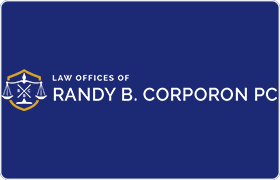Denver Criminal Lawyer, Colorado, page 2
Sponsored Law Firm
-
 x
x

Click For More Info:
-
Law Offices of Randy B. Corporon PC
2821 S. Parker Road Suite 555 Aurora, CO 80014» view mapCriminal Clients First, Excellence Always!
You owe it to yourself and your loved ones to be represented by an experienced, high-quality attorney, with a track record of proven success.
800-976-8531
Leonard R. Higdon
✓ VERIFIEDLeonard Higdon has lived in Colorado since 1985. Raised in Hawaii, he moved to Colorado to attend Fort Lewis College in Durango, where he received his... (more)
Eric John Wessels
✓ VERIFIEDEric developed his passion for law as an undergraduate in Austin, Texas. During law school at the University of Indiana at Bloomington, Eric focused... (more)
Amy Simons
✓ VERIFIEDLitigation attorney handling all types of Criminal Defense including DUI / DWAI, assault cases, drug cases, domestic violence cases. Also handling Wor... (more)
Kevin Thomas Ellmann
✓ VERIFIEDAfter gaining legal experience prosecuting criminal cases in the County, Juvenile, and District Courts, Kevin went to the Douglas County office in 200... (more)
FREE CONSULTATION
CONTACTScott H. Robinson
FREE CONSULTATION
CONTACTFREE CONSULTATION
CONTACTShazam Kianpour
FREE CONSULTATION
CONTACTFREE CONSULTATION
CONTACT Randy Corporon Aurora, CO
Randy Corporon Aurora, CO






